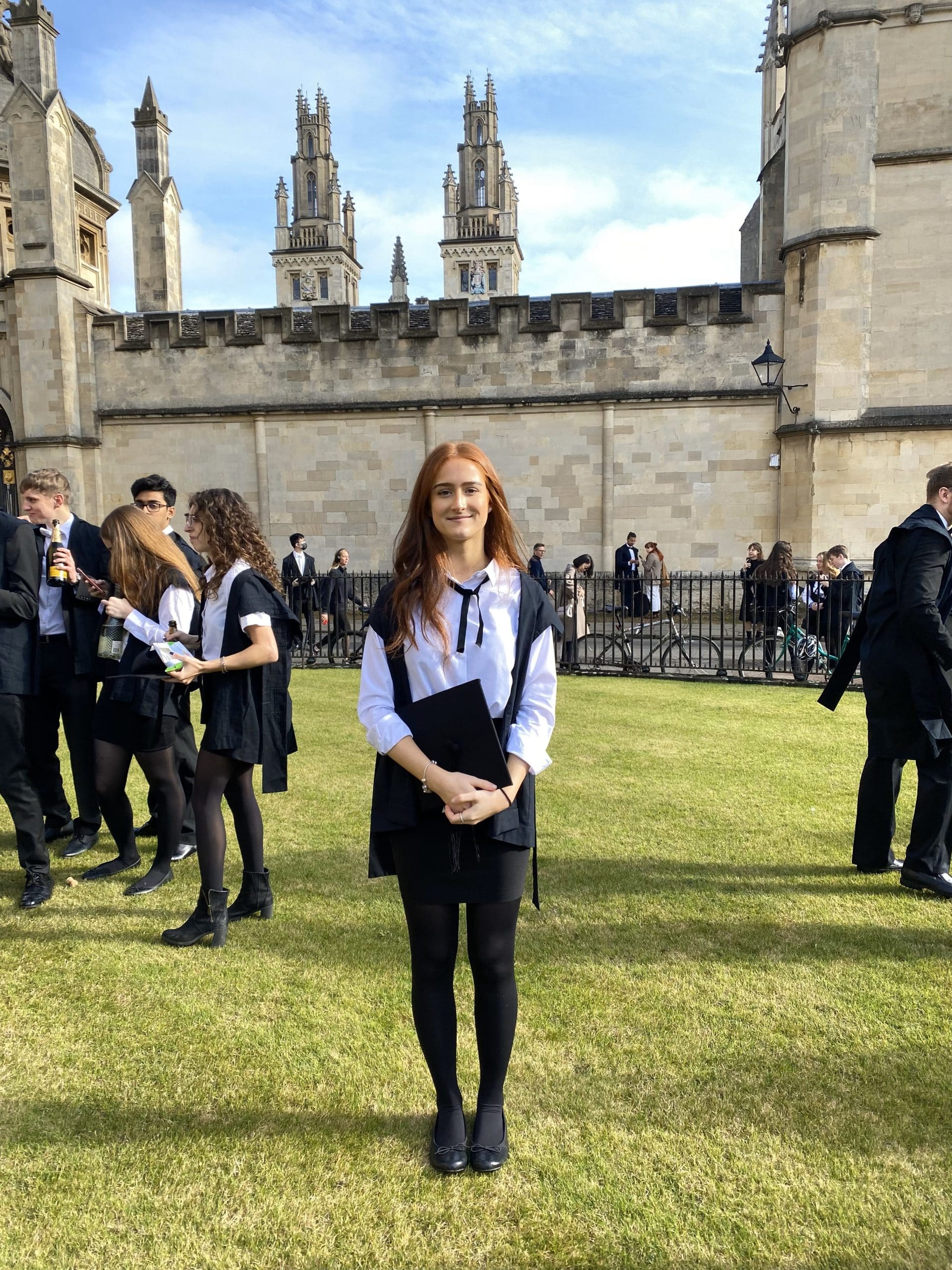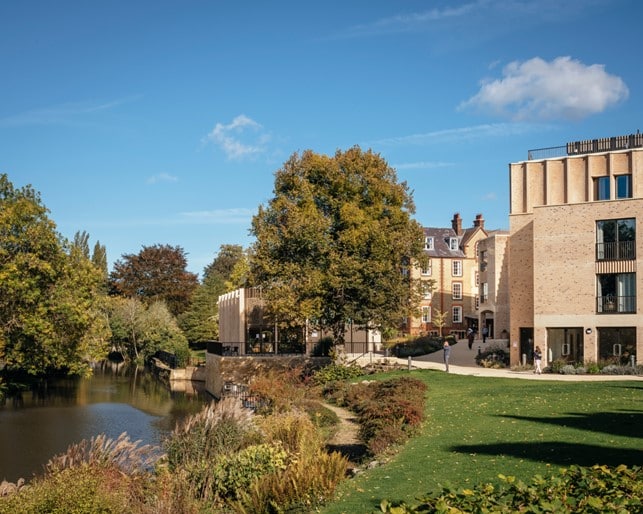
Emily worked for Oxford and Cambridge Tutors this summer as an Oxbridge Intern. She is going into her third year of Experimental Psychology at the University of Oxford (St Hilda’s College).
Emily was involved in teaching Psychology at our popular Summer School, and in supporting students with Personal Statements.
We asked Emily six questions …
1
How did you find the Oxbridge application process?
I grew up in York, where I attended a small Quaker school until sixth form. My A level Psychology teacher was incredibly supportive of my goal to study Psychology at Oxford, helping me with Mock Interviews and my Personal Statement. I sat the TSA and my two Oxford interviews in the peak of COVID, meaning my experience of the application process was mostly virtual – I did not get the chance to visit Universities prior to choosing them, relying entirely on the information given at online Open Days.
2
Why did you choose Oxford rather than Cambridge?
Oxford stood out to me over Cambridge as a larger city with more to offer beyond the University, and the nature of the Psychology courses at the two heavily informed my choice. The Experimental Psychology course at Oxford is taught very much as a scientific discipline, with a substantial amount of practical work and first-hand experimentation alongside lectures and tutorials.
3
What does it mean to receive an ‘open offer’?
I received an open offer to study Experimental Psychology at St. Catherine’s College, before being re-allocated to St. Hilda’s following results day that year.
An open offer is a form of conditional offer given by Oxford, whereby your place is guaranteed if you meet the grade requirements. However, the College you will attend has not been specified and depends upon the availability of places on your course on results day. Open offers are always underwritten by a specific College, which guarantees to accept you, should all places at other Colleges be filled.

4
Why did you choose Psychology?
My interest in studying Psychology beyond school did not really begin until taking the subject for A level. Throughout GCSEs, I enjoyed both the sciences and essay-based subjects for different reasons, and so trying to choose A levels that complemented each other was difficult! I found that Psychology was the only subject where I was able to combine learning about scientific methods and empirical evidence with arguing for or against evolving theories in an essay. I enjoyed this interdisciplinary approach and gradually realized just how many areas of work Psychology could be applied to; the legal system, health and social care, business, technology, education and many more.
I would highly recommend studying Psychology to anyone who felt the same as me, wanting to combine a love for science with strong essay-writing skills. Most Universities do not specifically require Psychology A level in order to take a Psychology degree, so it does not matter if you decide later on in your sixth form career that you would like to pursue Psychology.
“Psychology is currently the second most popular A level choice in the UK. As a subject that uniquely combines scientific theory and research skills with essay-writing and scope for subjective opinion, its rising popularity is unsurprising. Psychological advances are also important for solving many societal problems we face today; finding novel treatments for mental health disorders, navigating human interactions with technology, and understanding the psychological effects of the COVID-19 pandemic, to name a few. It is a rapidly evolving discipline, and the technologies allowing us to image the brain and its activity are constantly improving.”
5
How are you finding your degree?
My typical week at Oxford involves 6-7 lectures, 2 hours of tutorials and 3 hours of labs. In the third year of the EP course, students take on a research project supervised by a researcher in the department. My current project involves investigating the social-psychological factors that underlie media preferences, helping us to understand phenomena such as binge watching and the effects of harmful media distribution. There are plenty of opportunities to get involved in research at Oxford – in first year, we completed 40 hours of research participation within the department, giving us valuable insight into psychological studies currently being conducted in Oxford.


